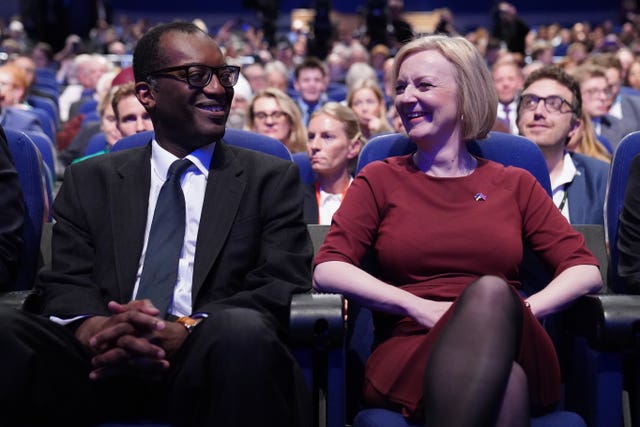PM’s economic adviser insists he warned her on mini-budget in spat with Kwarteng
The Chancellor earlier claimed he was not warned by economist Gerard Lyons about the risks of the tax-cutting package.

Liz Truss’s external economics adviser has insisted he warned her and the Chancellor about the risks of their mini-budget after Kwasi Kwarteng claimed he had not.
Mr Kwarteng told BBC Radio 4’s Today programme on Monday that he could not “remember” being warned by economist Gerard Lyons that the financial markets would not tolerate unfunded tax cuts.
Asked about the Chancellor’s claim, Mr Lyons told the PA news agency: “Well that’s incorrect. I was very clear.”

The most controversial measure was the scrapping of the top rate of income tax for the highest earners, a plan Ms Truss and Mr Kwarteng have abandoned in a dramatic U-turn.
Asked if he was pleased about the U-turn on axing the 45% rate on earnings over £150,000, Mr Lyons said: “I have no view on the U-turn.
“I was critical of that immediately after the mini-statement and said so publicly on the record, but it’s up to them what they do in terms of U-turns.”
Mr Lyons, chief economic strategist at Netwealth, previously said that the Chancellor “overstepped the mark” with his mini-budget and failed to adequately prepare the markets ahead of his announcement.
The spat adds to the pressure Mr Kwarteng is under in the wake of the U-turn, which will be seen as a massive blow to his authority, coming a little over a week after the tax cut was announced in the mini-budget and just a month into Ms Truss’s premiership.
Mr Lyons also told a fringe event at the Tory conference in Birmingham that most developments in UK financial markets last week were “wrongly” attributed to Mr Kwarteng’s fiscal statement.
He said: “The challenge last week was in the wake of the mini-budget, it seemed that most if not all of the developments in UK financial markets were attributed to the mini-budget wrongly.
“For instance, global markets were moving quite significantly last week. The dollar, actually sterling did pretty well against the dollar last week, but the dollar has been strong across the board, interest rate expectations globally have risen.
“So even if there had not been a mini-budget, it’s likely that we would’ve seen significant movements in markets last week in the UK, because that’s what was happening globally.”





